Some of our international alumni told us their story about the exciting PhD time in Magdeburg – with personal insights, their happy moments and few helpful advices for prospective PhD students.
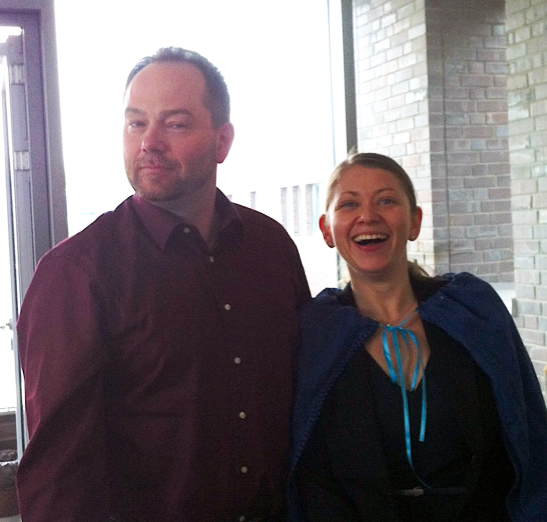
Dr. Anne Albrecht
Junior PI at the Department of Genetics and Molecular Neurobiology, OVGU
Trying to understand how to such diverse functions such as walking, talking, feeling happy or sad when listening to a certain type of music or forming movie-like memories for important episodes of our life are linked to the interaction of molecules and cells in certain brain areas has always fascinated me. While being a medical student at the Otto-von-Guericke University in Magdeburg, I realized that gaining deeper insights into basic biological processes of brain function will also provide a better understanding of neurological and psychiatric disorders. Therefore, I took part in the study program of neuroscience for medical students at the Otto-von-Guericke University and worked as a student assistant in the Institute of Physiology, where I soon discovered my passion for experimental work.
After graduating from medical school I therefore decided stay in basic research and work towards a Ph.D. degree. In my thesis project under supervision of Prof. Oliver Stork in the Department of Genetics and Molecular Neurobiology at the Otto-von-Guericke-University Magdeburg, I combined molecular, cellular and behavioral read-outs in order to decipher „Mechanisms of Contextual Fear Memory Generalization“. In October 2012 I then joined the lab of Prof. Gal Richter-Levin at the University of Haifa, Israel, for my postdoctoral research on the role of the dentate gyrus in an animal model of PTSD.
Appreciating the strong and vivid interdisciplinary neuroscience community in Magdeburg and the close-knit network that supports especially young researchers, I gladly seized the opportunity to move back to Prof. Stork’s lab in Magdeburg as a junior PI.
My research here focuses on the role of inhibitory interneurons within the amygdalo-hippocampal system in modulating emotional memory formation. Combining behavioral, molecular and electrophysiological approaches, I investigate how stress experiences throughout the lifetime influence memory formation and how inhibitory interneurons contribute to stress resilience and vulnerability.
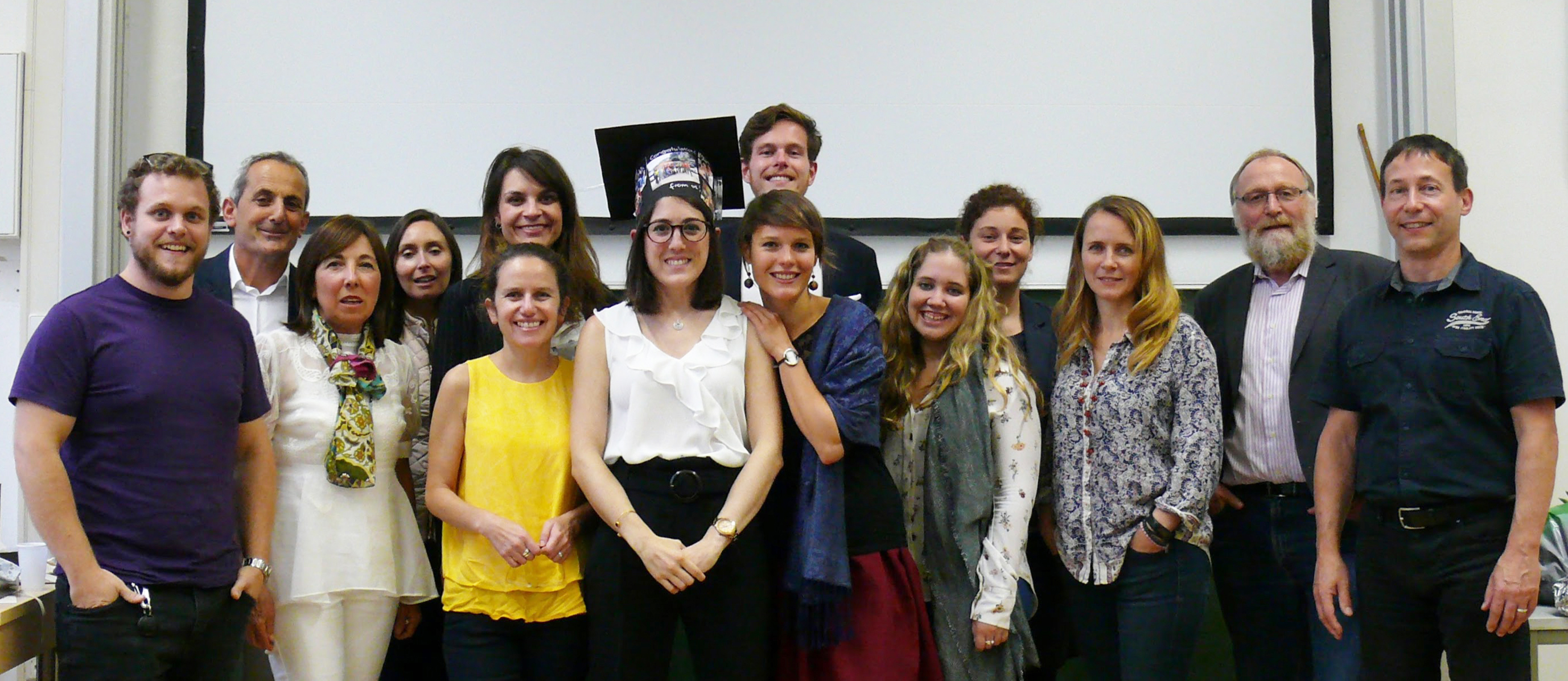
Dr. Maria Andrés-Alonso
Postdoc at RG Dendritic Organelles and Synapse Function, Center for Molecular Neurobiology (ZMNH), UKE Hamburg
Before I started my PhD, all I knew about Magdeburg was that it was a city somewhere in Germany that had handball team which was doing quite well in european competitions.
I studied Biology at University of Navarre (Pamplona, Spain) and, it was at my very last months as undergraduate, when I developed an interest about the brain and the molecular aspect of its cognitive function.
Moved by this curiosity, I went to London where I took part of the MSc Neuroscience at University College London. It was a great program and I learnt a lot. However, I soon realized that the environment and the city was too hectic for me and I started applying for PhD positions outside the capital. One day as master student, we got an advert of a PhD position within a Marie Curie Initial Training Network in Magdeburg and, though I was afraid of moving to Germany and having to deal with a new culture and language, I applied for it.
One can easily imagine how different everything feels when you arrive at Leipzig airport from London. Nevertheless, during the personal interview at LIN I soon realized how much I liked the place and how different the environment was. I immediately liked it.
I enjoyed very much my time at LIN. It is a very international institute full of motivated students and researchers. I focused on studying the physiological function of the Alzheimer´s Disease protein Amyloid-β and the molecular and cellular mechanisms modulated by this protein whithin the presynaptic compartment. I learned to work with cell lines and primary neuronal cultures, molecular cloning, cell transfection and lentiviral infections and I did a lot of live-cell imaging. It was, from the scientific and the personal point of view, a very enriching experience. And Magdeburg turned out to be a nice, small city with plenty of green areas around the Elbe which I enjoyed very much during my free time and where I left a bunch of friends and colleagues that I often visit.
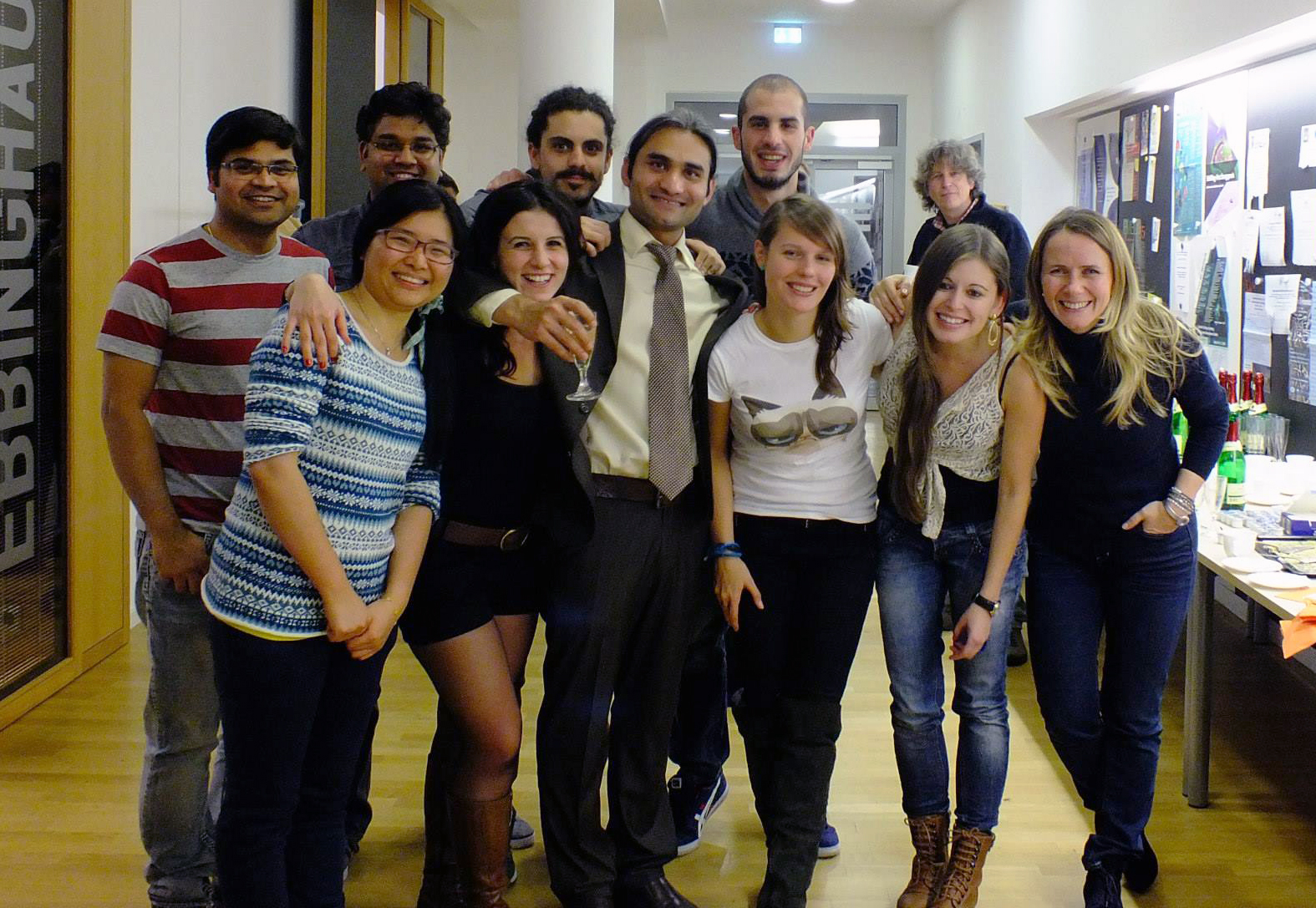
Dr. Rahul Kaushik
Post-Doctoral Fellow at AG Molecular Neuroplasticity, German Center for Neurodegenerative Diseases (DZNE)
For newcomers, who are interested to come to Magdeburg for their research, I have just two words. ‘’Do come’’
In my opinion, there are two things that are important to consider, firstly, the place itself (the lab and the Institute) and the city. I think it’s very important to consider all pros and cons of both.
I did my Ph.D. from Leibniz Institute for Neurobiology (LIN), so I can mostly talk about that institute. There are also other great institutes among the neuroscience landscapes of Magdeburg like DZNE, Institute of Biology, Institute of pharmacology and toxicology, to name a few. LIN has been a very special place of learning for me. It has not only taught me how to do good science but also has enriched me and helps me develop as a human being.
I came to an old building of LIN, where the great science was done into a building that resembled an old GDR style building from the outside. But the moment you go inside, it was a warm and cozy place to work. There are so many memories connected to the old building. Now, LIN has its fantastic new building that looks beautiful from both outside and inside with plenty of space. I made many friends during my time, learned so much from so many different people. Normally, one might hear from most people complaining about some place that everybody is busy in their own lives and nobody has time for other people. At LIN, it seems to be opposite; everybody seems to be ready to help. All you have to do is just kindly approach them (of course in advance and with appointments (Termin), Its Germany after all.
The city itself is very nice, clean and green with lots of open spaces and parks. It’s a great place to do research because it’s neither too big that might distract you nor too small that you feel bored. It is just a few hours from other nice cities like Berlin, Hannover or Leipzig. So if you miss the big city entertainment, you can always visit the other cities once in a while.
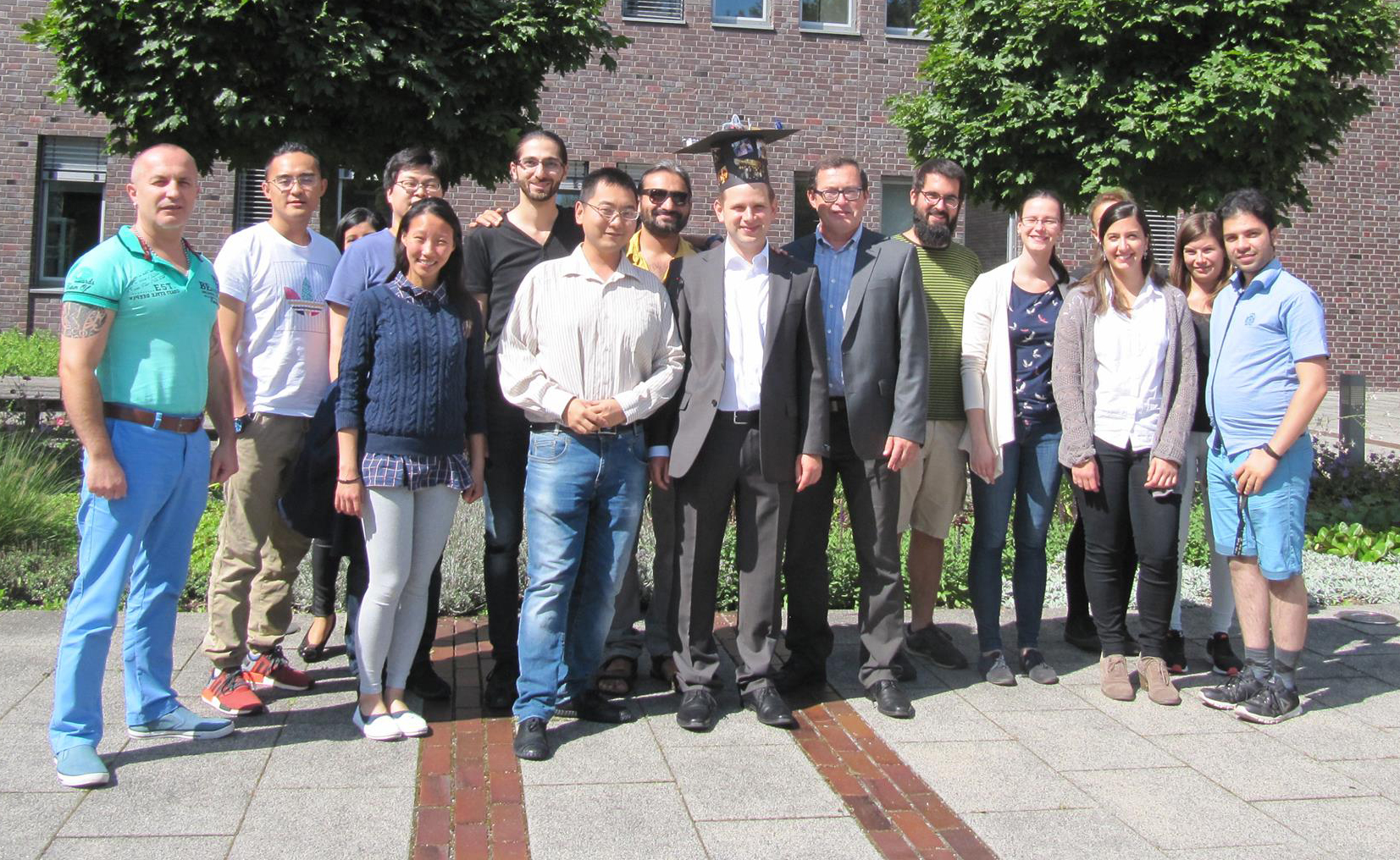
Dr. Hristo Varbanov
Postdoc at the Institute for Pathophysiology, University Medicine, Johannes Gutenberg University Mainz
After my M.Sc. studies in Neuroscience at the University of Cologne, I was lucky to join the lab of Prof. Alexander Dityatev at the German Center for Neurodegenerative Diseases (DZNE) in Magdeburg. During my Ph.D., I studied the role of the neural cell adhesion molecule-associated polysialic acid in synaptic plasticity in the medial prefrontal cortex using various electrophysiological and immunohistological techniques. Prof. Dityatev, a distinguished electrophysiologist, has been a great supervisor and mentor, supporting me with helpful advice and guidance trough my experiments, manuscripts, and thesis writing.
I can recommend the University of Magdeburg for several reasons. As a Ph.D. student in Magdeburg, I had the opportunity to visit great neuroscience lectures and seminars not only at DZNE, but also in the neighboring Institute for Neurobiology (LIN), Institute of Physiology, Institute of Biology, or the Institute of Pharmacology. Thus, I had the opportunity to participate in several collaboration projects and to interact with many other international Ph.D. students and postdocs working at excellent local labs, which was always a great source of inspiration for my projects. This also helped me to quickly find many like-minded friends in the new city.
One of the first things that I noticed after moving to Magdeburg are the low rental fees and the availability of decent flats, when compared with other major cities in Germany. Most of my colleagues loved to spend their free time in the parks at the Elbe river or in one of the cafés at Hasselbach square or near the Altmarkt. Unfortunately, Magdeburg does not have a big airport, but you can fly from Berlin, Hannover, or Leipzig, which can be reached within two hours.
After all, I enjoyed my Ph.D. in Magdeburg very much, because I was happy to work on exciting projects and was surrounded by supportive and friendly colleagues.
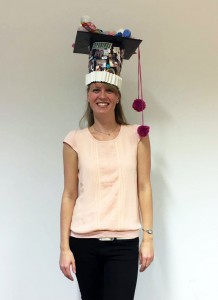
Dr. Ines Erdmann
Account Manager at QIAGEN GmbH
Since school I was really interested in neuroscience. During my A levels I started a cooperation with the group of Prof. Reichenbach at the Paul-Flechsig Institute for Brain Research in Leipzig to translate the scientific language into a “school-friendly”-language. Thereby I got my first insights into the “real” research world far away from school and I really liked it a lot. Thus it was clear I will do something with neuroscience after school. After graduating with my B.Sc. in Biology from the University of Hamburg I moved to Magdeburg as it is known as one of the neuroscience hotspots in Germany. Here I started my intensive studies about neuroscience within the “Integrative Neuroscience” study program. During these studies I got to know Prof. Dieterich and the application of “click chemistry” in neuroscientific research. I was immediately fascinated about this method and even more excited that this could be combine with neuroscience. Thus I started working in this lab as a student assistant and later on doing my master thesis in the group. During this time there was a great opportunity to stay in this field within the Leibniz Graduate School for Synaptogenesis to do my PhD. I took the chance and graduated 5 years later. After graduating I had the feeling to stay in the scientific world but do something different. Thus I am now working as a Account Manager for QIAGEN in the Magdeburg region. Although leaving the lab and the people there was not easy, I did not regret moving into industry. Although my new job took me into a different career direction I still live in Magdeburg and be a part of the scientific community.
Magdeburg is a nice city which is not too big and not too small. For me this city has a number of nice things you can do over the whole year. You have a lot of things to do here or you either visit some bigger city around Magdeburg, like Leipzig, Berlin or Hannover or you can go to some smaller city in the Harz region and discover the beauty of some old small cities or even go on hiking adventures in the Harz. I think this is a nice environment to do your Ph.D. because you have a lot of opportunities to do something to get your head free after a hard week at the lab, to start fresh and with a mind full of new exciting ideas after enjoying the weekend.
You completed your PhD or MD degree in Magdeburg? Please share your picture and your story with us.